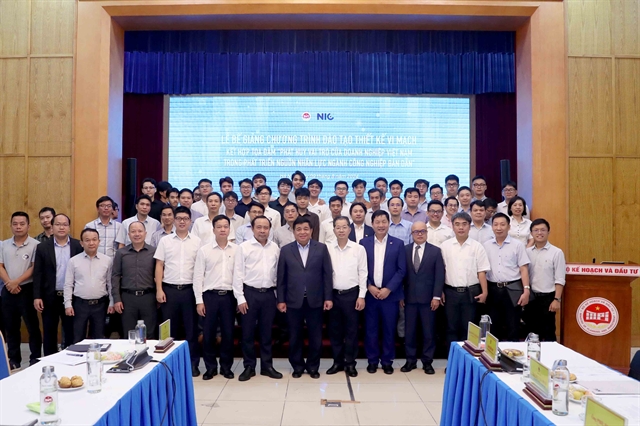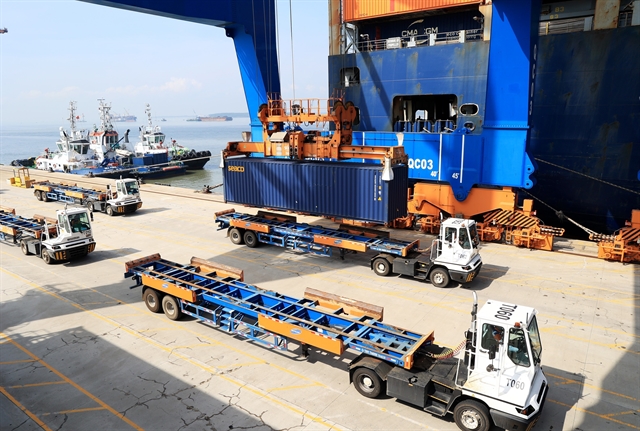 Economy
Economy

 |
| Gemalink International Port in Bà Rịa-Vũng Tàu. Việt Nam is facing with a shortage of skilled and qualified workers for the seaport industry while the country is aiming to become a strong maritime nation. — VNA/VNS Photo Hồng Đạt |
HÀ NỘI — Việt Nam is facing with a shortage of skilled and qualified workers for the seaport industry as the country aims to become a strong maritime nation.
Việt Nam Marine Administration said that seaport companies are struggling with recruiting skilled and qualified workers. It often takes one to two years for on-the-job training to meet the requirements.
Việt Nam expects to have around 1,000 wharves and handle 1.5 billion tonnes of cargo per cent by 2030, requiring large human resources.
The report on skills forecast for Việt Nam’s port industry 2024-28 by Việt Nam Chamber of Commerce and Industry and Australian Aid pointed out that seaport businesses always face a serious shortage of port facilities and equipment operators as well as port operations and technical workers and stevedores.
Hard-to-fill positions include equipment and vehicle operators, port operations and technical workers and stevedores.
The report also pointed out that technology trends such as electronic and smart ports, self-propelled loading and unloading equipment, green ports, robots and automation and artificial intelligence will significantly impact Việt Nam’s human resource needs in its future seaport sector.
Logistics expert Thái Văn Vinh said that it is necessary to enhance the cooperation between seaport businesses and training establishments to tackle the shortage of human resources for the seaport industry.
Training quality must also be enhanced to meet international requirements.
According to Việt Nam Logistics Research and Development Institute, human resources is the top concern of enterprises when investing in seaport and logistics industry.
It is important to have policies and plans to improve the human resources for the seaport industry to meet the demand of enterprises and the industry’s development trend, the institute said. — VNS




